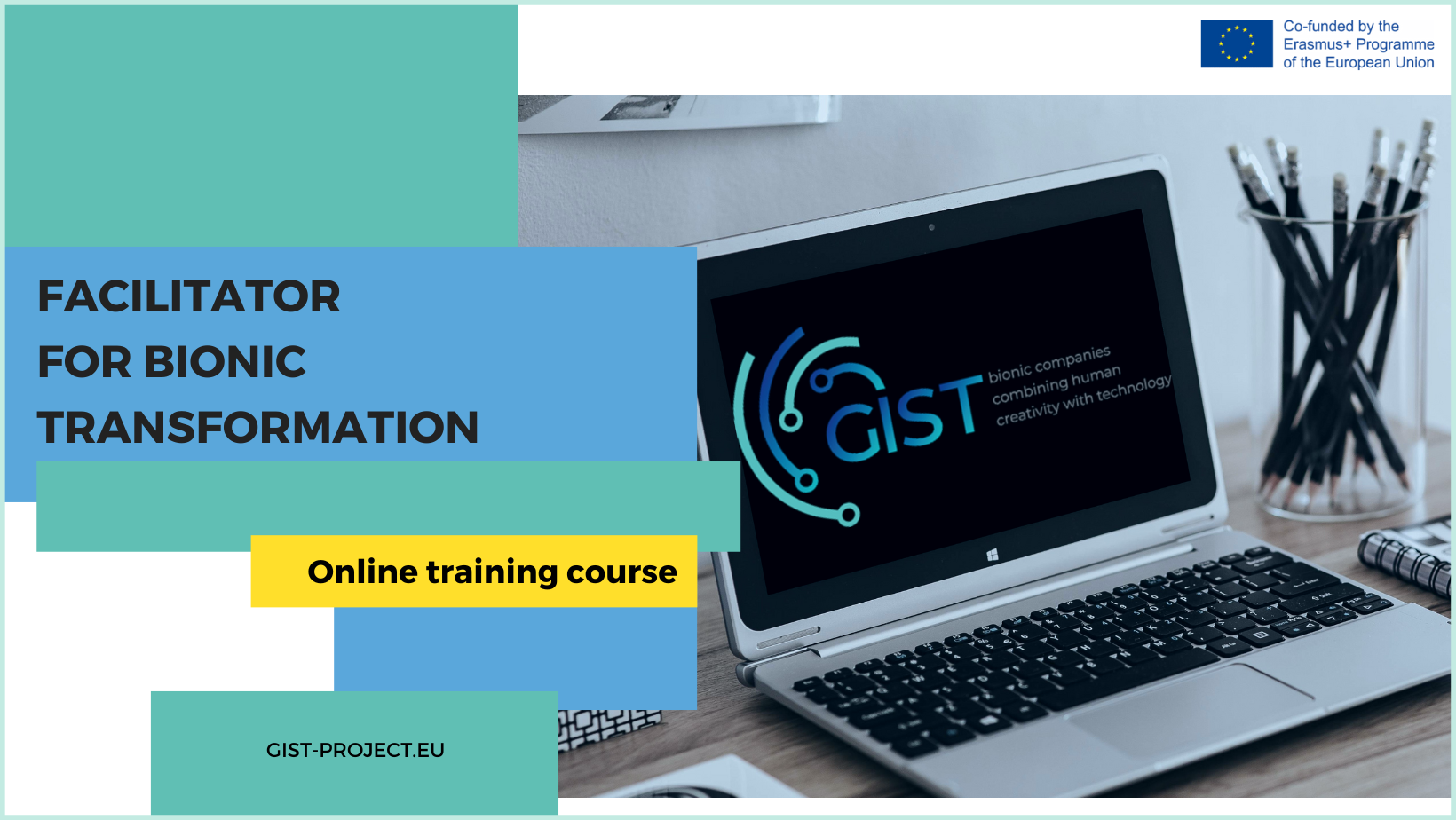GIST Training Unit 2: Soft Skills for Bionic Transformation
Traditionally viewed as a sector that relies on handcrafted and manufacturing processes, the furniture industry has embraced new technologies in the last years. Thus furniture companies have to keep up with the increasing technological transformation – a challenging task for organisations and requiring personnel with skills they never had before.
Under this context, GIST strengthens those key skills and competencies by developing a novel training e-course to achieve the basic competencies for SMEs to reach the status of bionic enterprise.
LU8: Brainstorming and Communication
https://lnkd.in/dKcSiiXt
Brainstorming is a method of generating ideas and sharing knowledge to solve clearly defined design problems. It is a perfect tool for idea generation in controlled conditions and a free-thinking environment. In module LU8, you will learn how teams produce a vast array of ideas and draw links between them to find potential solutions to a given problem or issue.
LU9: Design and Strategic Thinking
https://lnkd.in/daQQqFbg
Digitalisation as a new reality for the business sector requires design thinking, strategic thinking and strategic planning for transformation in BIONIC COMPANIES. In module LU9, you will learn how design thinking and strategic thinking enable creativity and innovation and encourage critical thinking and problem-solving, which are extremely important skills for ENTREPRENEURS.
LU10: Collaboration and Decision Making
https://lnkd.in/dGT_kws7
Collaboration is the process of two or more people or organisations working together to complete a task, achieve a goal or achieve shared goals. In module LU10, you will learn how collaboration in a company brings many benefits like increasing organisational and group transparency, boosting the team and organisational productivity, and less waste of employee time.

Who is it for?
To help SMEs acquire the fundamental skills required to achieve this "Bionic Status," GIST creates cutting-edge training materials. It has a special emphasis on businesses in the furniture industry, a sector where the fourth industrial revolution had not yet made a significant impact.
The project's primary target audience is SMEs in the furniture and associated sectors, as well as national and regional authorities and civil society.